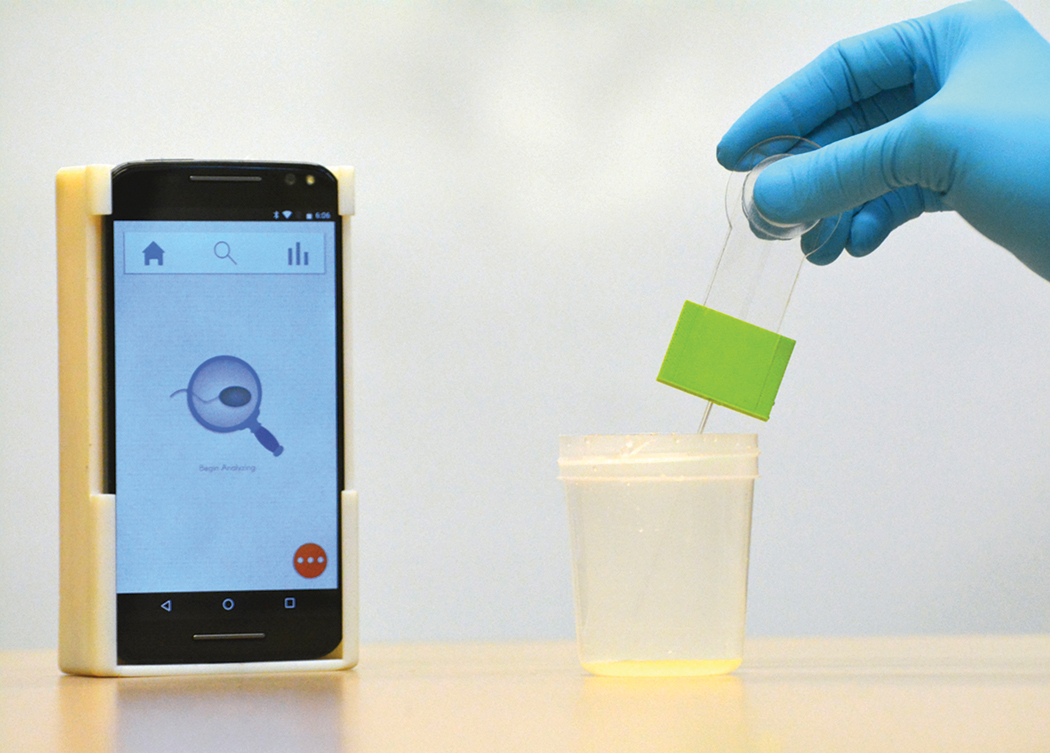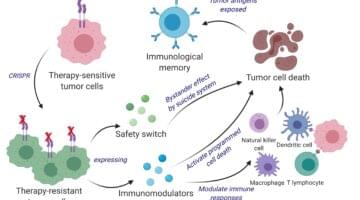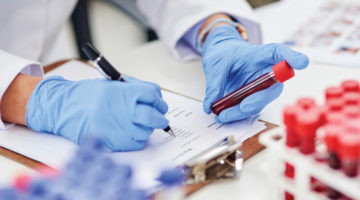
Investigators at Brigham and Women’s Hospital (BWH) and Massachusetts General Hospital have developed a home-based male infertility diagnostic test that can measure semen quality using a smartphone-based device. The team’s latest findings indicate the smartphone-based semen analyzer is 98 percent accurate at identifying abnormal semen samples based on sperm concentration and motility criteria.
“We wanted to make male infertility testing as simple and affordable as home pregnancy tests,” said Hadi Shafiee, PhD, of BWH’s Division of Engineering in Medicine and the Division of Renal Medicine. “Current clinical tests are lab-based, time-consuming, and subjective. This test is low-cost, highly accurate, and can analyze a video of an undiluted, unwashed semen sample in less than five seconds.”
The analyzer consists of an optical attachment that can connect to a smartphone and a disposable device that holds the sample. A disposable microchip with a capillary tip and a rubber bulb is used to handle the sample while the team’s user-friendly smartphone application guides users through each step of testing. Shafiee estimates the device will be available in two to three years with approval from the Food and Drug Administration.










